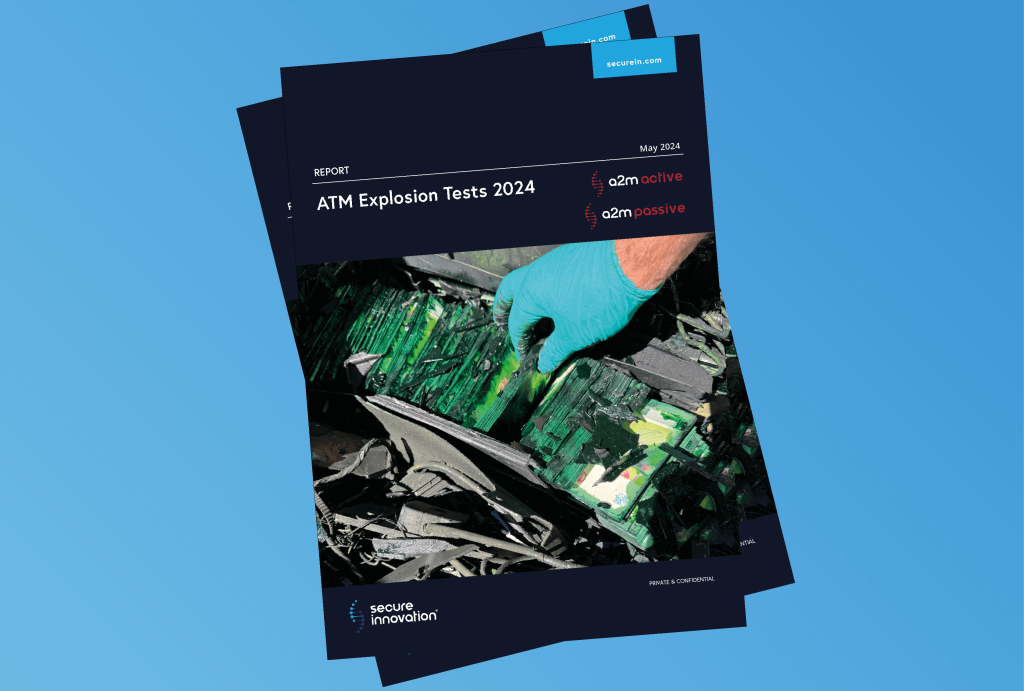a2m active and a2m passive were put to the test in Spain with the Spanish National Police in live ATM attack explosive testing with both solid and gas explosives.
The purpose of the ATM live explosive testing was to understand the impact and consequences of an ATM attack using explosives, and to develop protocols for responding to such a scenario. The tests were carried out to demonstrate the effectiveness of different types of ATM protection to immediately neutralise the cash value, eliminating any potential gain for criminals and discouraging future attacks.
ATM Attack Explosive Testing – Request the Report
If you want to read more detail about how the tests were carried out, and both a2m active, with hub+ and a2m passive performed, use the link below to request your copy of the report.
Read the Report
See how a2m active and a2m passive performed in live explosive tests.

Products Tested
a2m active is more than just a smart cash cassette. This is the next generation in cash machine protection with intelligent remote management and attack detection sensors. A full ATM protection system.
hub+ can be integrated into your security networks to reduce ATM thefts for increased protection and active control with a2m active.
a2m passive is easy to install with no electronic parts needed. This patented passive ink stain system instantly protects cash in ATM explosive attacks.
Conclusion
The successful operation of both a2m active and a2m passive systems against ATM gas and solid explosive attacks was proven conclusively by these tests. To find out more, request our report via the link above. In both systems, it was observed that ink staining occurred on 100% of the banknotes contained in the cassettes and over an area greater than 20% of the individual banknote surface.

